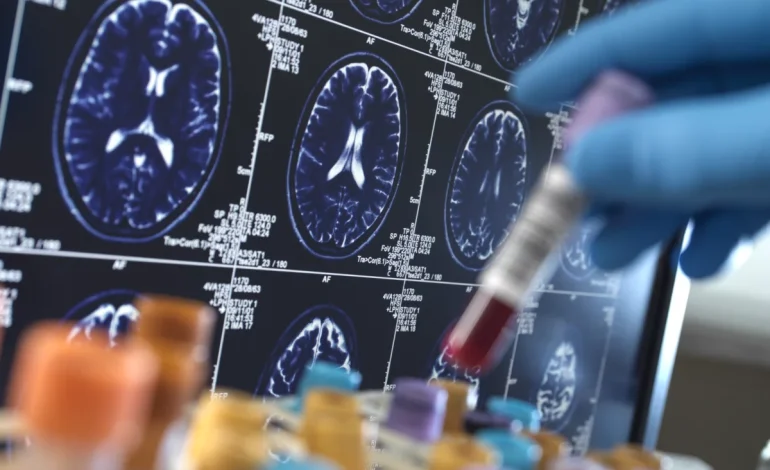Researchers have developed two new laboratory tests that could improve how doctors diagnose and assess Alzheimer’s disease—by focusing on cognitive decline rather than just the presence of brain plaques, NPR reports.
While existing tests detect amyloid plaques, a key marker of Alzheimer’s, these new tests aim to determine whether those plaques are actually affecting memory and thinking. The developments, described in Nature Medicine, could help doctors better identify patients who might benefit from treatments targeting amyloid buildup.
A team led by Dr. Randall Bateman, a neurology professor at Washington University in St. Louis, developed a blood test that measures levels of a specific tau protein known as MTBR-tau243. Unlike amyloid plaques, which can accumulate in the brain without causing symptoms, this tau biomarker is more directly linked to memory loss and disease progression.
“The test only goes up when people are symptomatic,” Bateman said.
He implied that it could help doctors determine whether a patient’s cognitive issues are actually due to Alzheimer’s.
Initially, researchers had to use spinal fluid to measure the biomarker, but they have since refined the process to work with blood samples. Once available commercially, the test could provide a simple way to assess whether a patient’s amyloid plaques are contributing to memory impairment—and whether treatments to remove plaques might still be effective.
The second test, developed by a team led by Stanford University neurology professor Tony Wyss-Coray, examines proteins in spinal fluid to predict memory loss. Researchers identified two proteins that change as cognitive function declines: one increases in people with memory problems, while the other decreases.
By calculating the ratio between these proteins, the test provides a strong indicator of a person’s memory health. The findings suggest that changes in these protein levels can appear up to 20 years before Alzheimer’s is officially diagnosed.
“This is a process that seems to anticipate the development of cognitive decline 10, 20, 30 years later,” said Dr. Paul Worley, a neuroscience professor at Johns Hopkins University.
The test focuses on synapses—the connections between neurons—which play a crucial role in brain function. Worley and his team previously discovered that people with normal levels of one of these proteins could maintain cognitive function despite having amyloid plaques in their brains.
Both tests could help doctors and patients make more informed treatment decisions. Bateman noted that his team’s blood test could indicate whether Alzheimer’s has advanced beyond the point where plaque-removing drugs would be beneficial.
“We can now make a much more informed choice about: How much benefit are you likely to get if you undergo a treatment to remove the amyloid plaques?” Bateman said.
Meanwhile, Wyss-Coray’s spinal fluid test may help identify people at high risk for memory loss years before symptoms appear—potentially opening the door for earlier intervention strategies.










The latest news in your social feeds
Subscribe to our social media platforms to stay tuned